#slavenka drakulic
Explore tagged Tumblr posts
Note
tbh i have an extra hateboner for percy jackson bc they were mediocre, far less interesting than HP, yet after everyone started turning on HP, PJ stans crawled out of the woodwork and started shilling it as having been superior all along. shut up + read a book that's not for 10 year olds
I mean, they were both fine - Percy Jackson came out when I was already a teenager, and as someone whose reading level and interests always skewed older/more mature anyway, I was like "oh, okay". Just as an example, the year The Lightning Thief came out, I was already reading Slavenka Drakulic and Chalmers Johnson.
12 notes
·
View notes
Note
3, 10, 11!
What were your top five books of the year?
1. Cafe Europa by Slavenka Drakulic. I honestly don't know how I didn't read this until this year, but as always everything she writes is brilliant
2. Pachinko by Min Jin Lee. I am a complete sucker for any kind of intergenerational family saga
3. The Long Way to a Small Angry Planet by Becky Chambers. It's not necessarily the best written book I've ever read, but it really does hit a lot of the stuff I like in sci-fi and is just generally delightful
4. Buru Quartet by Pramoedya Ananta Toer. Set during the end of Dutch colonial rule and originally written while the author was in prison by recitation because he wasn't allowed pen and paper. The prose itself is absolutely beautiful at times
5. The Time of Contempt (from the Witcher series) by Andrzej Sapkowski - I've been kind of lukewarm on the Witcher series up til now but this one really hit for me! I sort of like how it almost felt like a stage play, there's not a ton of action on the page, but you're moving from one discreet scene to the next and most of the plot progresses through the dialogue.
What was your favorite new release of the year?
I only read a couple new 2023 releases this year and they were all massive disappointments lmao. Next closest thing is probably Nona the Ninth which technically came out last year but I didn't get ahold of it until January, and was of course very good!
What was your favorite book that has been out for a while, but you just now read?
Probably the Buru Quartet again! I've otherwise been on a huge recent-ish SFF streak trying to catch up on some series, so I haven't read a whole lot that's older, but most of the ones I did pick up just did not do anything for me. Normally I read a lot of classics so this year is definitely an anomaly
4 notes
·
View notes
Photo
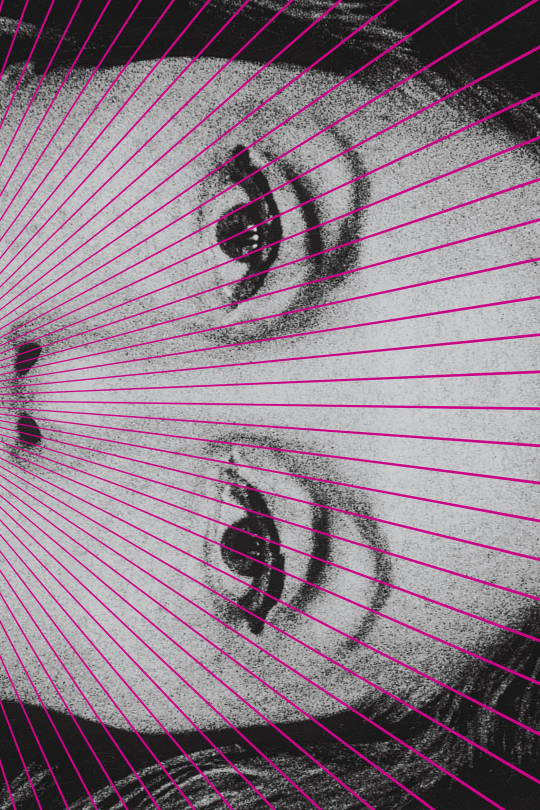
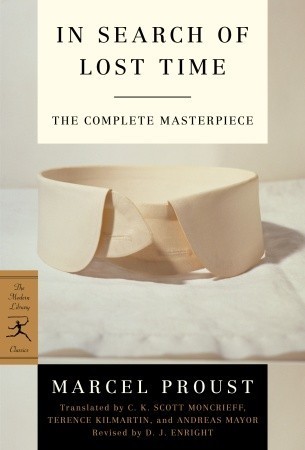
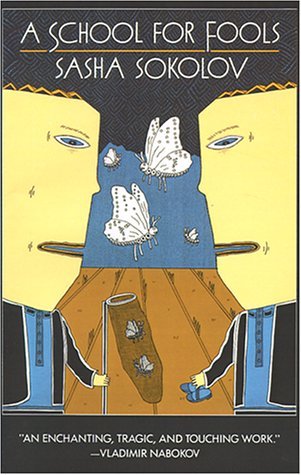
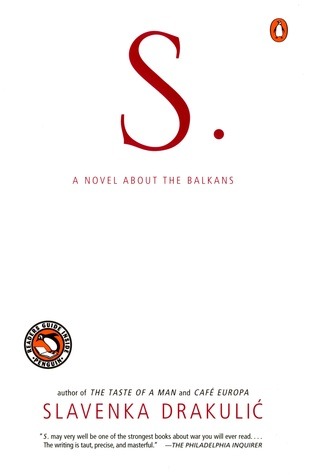

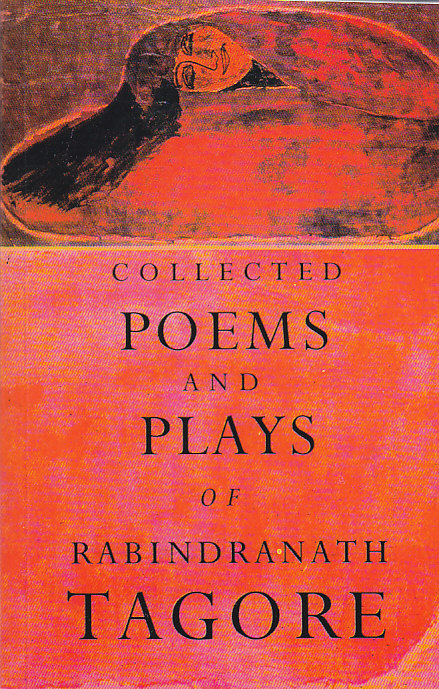
books i want to read this year (2023) tagged by @cordeliaflyte thankkk u 🥺
transcript under the cut!
1. collected stories by clarice lispector. 2. in search of lost time series by marcel proust 3. a school for fools by sasha sokolov 4. s: a novel about the balkans by slavenka drakulic 5. sula by toni morrison 6. collected poems by rabindranath tagore
5 notes
·
View notes
Photo

Slavenka Drakulic; How We Survived Communism and Even Laughed
2 notes
·
View notes
Text
Slavenka Drakulic: 'De oorlog grijnst je tegemoet uit je eigen gezicht'
bron beeld: slobadna-bosna.ba De Kroatische journaliste, schrijfster en essayiste Slavenka Drakulic (1949) vertelt in het korte verhaal Een doodstille stad over haar ervaringen met de oorlog in voormalig Joegoslavië. Die ervaringen zijn diep ingrijpend, traumatisch, wezenlijk en onvergetelijk. In onderstaand fragment verhaalt ze over het ingrijpen van de oorlog in haar persoonlijk leven. Lange…
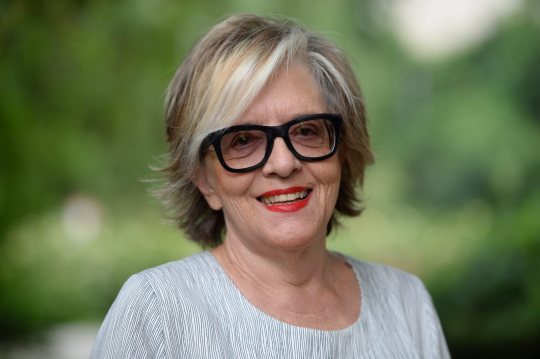
View On WordPress
#20-ste en 21-ste eeuws#dood#ervaringen#essayiste#Joegoslavië#journaliste#Kort Verhaal#Kroatie#ontsnappen#oorlog#persoonlijk leven#schrijfster#symptomen van ontkenning
0 notes
Video
youtube
Video Notes:
There is not one moment of realization in a society that it is living under authoritarianism; ✓ Communism provided a certain security that plays into today’s nostalgia for it; ✓ "When people are given choice between freedom and security, they will choose security" “People pretty much know that they are living under a totalitarian regime. Everyone is more or less aware of limitations. They realize that they don’t have freedom of expression, freedom of movement, human rights etc. but when Communism fell it happened unexpectedly, from the sky… and people were very much shaken and very much afraid," says Croatian writer and journalist Slavenka Drakulic. "There was this fear of what is new, what is coming… When people are given choice between freedom and security, they will choose security. “ Drakulic believes nostalgia plays a big part in memory of Communism, “In private memory it’s a feeling of security and being taken care of. It’s a tradeoff. I would reduce that feeling of nostalgia to that feeling.” She says that when Croatia was independent between 1941 and 1945, it was a fascist state, but in 1991 the Croatian government stopped mentioning that fact which has resulted in many young Croatians today not believing Croatia was a fascist state at all. Hromadske International's Angelina Kariakina spoke to Slavenka Drakulic in November, 2015. Get up to speed on Ukraine. Follow Hromadske! http://en.hromadske.tv/
7 notes
·
View notes
Text
Café Europa by Slavenka Drakulić
What does it take to be a part of Europe, for a country to really feel like it belongs there? That is what the people living in formerly Communist nations wondered after the fall of communism. Trendy cafes with names like Cafe Europa sprang up in places like Sofia, Bulgaria and Zagreb, Croatia, indicating a desire to fully feel like they belong to the continent. In the years following the Iron Curtain’s fall, Croatian journalist Slavenka Drakulic wrote essays about the ironies, intricacies and nuances of life in Eastern Europe, and about what becoming a proper part of Europe could mean to the countries. Primarily based on her firsthand experiences, the essays are an intriguing collection that offer a look into life in Eastern Europe and the effects that communism and dictatorship left on the people. She talks about the $100 customs duty required when visiting Croatia, and the ways that people smuggle and try to find their way around it (pro tip: get fake receipts). During her visits to the US, Drakulic noted the American obsession with clean, white teeth, which she observes is more than a vain focus on looks, but rather a point of wealth and money; people are proud to have the money to get their teeth whitened or spend thousands of dollars on braces. This is in contrast to her home country, where dental care is free but people walk around with missing teeth. Another intriguing essay is of Drakulic’s time in Israel, where she was surprised to be consistently asked about whether she felt guilty about Croatia’s role in the Holocaust by sending thousands of people to die at the concentration camp Jasenovac. Eventually Drakulic ascertained that what the questioners really want to know is whether she felt guilty about the current Croatian government’s stances and policies regarding the Holocaust. Drakulic also talks about Istria, the peninsula that holds land belonging to Croatia, Italy and Slovenia, where a person may think of himself as Slovenian in the morning and Italian in the evening, and people adhere to regional loyalties rather than national loyalties. Many of Drakulic’s essays deal with money and the Eastern European attitude towards money. That may involve traveling to Trieste to find sales or buying a vacuum cleaner in Vienna to bring back to your house in Croatia because even if you get caught with the $100+ item and have to pay duties, it’s still cheaper than buying it in Croatia. Even though the average wage is much lower in Croatia than in Western European nations, the cost of living is much higher, so Drakulic brings diapers and other goods with her when she visits to help out family and friends. The essays in Cafe Europa were all very good and interesting, although because they were written in 1995, they seem outdated now. I would love to see her write a follow up collection of essays today exploring Eastern Europe today and seeing whether she believes her native Croatia and other nations have truly joined Europe yet. Would she find the same attitudes towards money, democracy and the past that she saw when she wrote it? When I picked up this book, I assumed it would feature more actual reporting and talking with people than Cafe Europa actually does; it’s primarily her own experiences and observations or analyzing an event like an interview given by a World War II era war criminal in exile in Buenos Aires. This does not mean that the essays are bad though, as Drakulic is a sharp observer and has some interesting thoughts about the post-Communist world. I’ve been a fan of Drakulic ever since reading her novel S and non-fiction book They Would Never Hurt a Fly (which are both also wonderful books that I highly recommend), and I am still a fan of hers and look forward to reading more of her books in the future.
3 notes
·
View notes
Note
What are some of the things on your to read list??
Among others:
How We Survived Communism and Even Laughed - Slavenka Drakulic
Founding Gardeners: The Revolutionary Generation, Nature, and the Shaping of the American Nation - Andrea Wulf
Readying Rilla: An Interpretatice Transcript of L. M. Montgomery's Manuscript of 'Rilla of Ingleside' - Elizabeth Himman Waterson, Kate Waterson
The American Plate: A Culinary History in 100 Bites - Libby O'Connell
Cheerful, by Request - Enda Ferber
The Grass People - Kay Parley
The Queen Must Die and Other Affairs of Bees and Men - William Longgood
Peaceweaver - Rebecca Barnhouse
Threads of Life: A History of the World Through the Eye of a Needle - Clare Hunter
Ale, Beer, and Brewsters in England: Women's Work in a Changing World, 1300-1600 - Judith M. Bennett
#mostly non fiction#i read more non-fiction these days than fiction#i'm too picky about fiction#i y'all have any really good fiction recommendations please toss them my way
11 notes
·
View notes
Link
The other day on the BBC news I saw a young, educated and eloquent Serbian woman speaking about the life of ordinary citizens under the NATO bombing. The Serbian citizens are afraid, she said. Normal life is more and more difficult. There are power cuts, and people are forced to go several days without access to the Internet. There is also a cigarette shortage. But yes, they are trying to live normally. They go to work, they shop, and they sit in cafes. Of course, the bombing turned the Serbian citizens against NATO, not against Slobodan Milosevic. After all, “bombs are dropping from the sky.”
Clearly, this young woman, like so many Serbs, does not want to understand that her country is at war. They still seem to be thinking, What has all this to do with me? I know this mechanism of denial, because I have seen it before. Serbs by and large ignored the wars in Croatia and Bosnia. It was always happening somewhere else, to somebody else, and they were not involved. It was the Serbian army, the police, the paramilitaries, but not them, the ordinary citizens. But now, when it is happening in Serbia and affecting all of them, they are still somehow surprised.
The young woman on TV used the expression “Serbian citizens,” but her use of this phrase suggested that these Serbian citizens are people struggling to maintain the normality of their daily lives. By “Serbian citizens” she evidently meant only Serbs. Others–that is, Albanians–are simply never mentioned in that context. Their problems are not addressed, by her or other Serbs. In the perception of ordinary Serbs, Albanians are not included in the category of Serbian citizen and therefore are absent from the language as well.
Why? The problem is that Serbs–or anyone else, for that matter–cannot identify with the suffering of others if they are not able to see them as equals. In Yugoslav society Albanians were never visible. There was no need to construct their “otherness”–as, for example, with Jews in prewar Germany or recently with Serbs in Croatia. The Albanians were never integrated into the country’s social, political and cultural life. They existed separately from us, barely visible people on the margins of our society, with their strange language that nobody understood, their tribal organization, blood feuds, different habits and dress. They were always underdogs. What was their place in the Yugoslav literature, in movies and popular culture? What famous Yugoslavs were Albanians? Because of that estrangement, not many voices were raised in protest during the past ten years, when Albanians in Kosovo lived practically under apartheid.
For the older generation, the only visible Albanians were people in white caps coming from Kosovo to their cities to cut wood in the winter. For my generation they were people selling ice cream all over Yugoslavia. They spoke our language with a funny accent and never could pronounce “lemonade” properly. They lived among us, but we chose to ignore them. If we did happen to notice them, we despised them, laughed at them, told jokes about them. I never had an Albanian friend in Zagreb. No one I knew married an Albanian. But the difference between Croats and Serbs was that Croats did not really have to deal with the Albanians; we had no Kosovo.
It was clear that they belonged to a different category from Serbs, Croats, Macedonians, Montenegrins or Slovenes. Serbs could even fight a war against Croats, but they never perceived each other in the same way they both perceive Albanians. The prejudice against Albanians can be compared to that against Jews or blacks or Gypsies in other cultures. Today every Serb will tell you that Albanians multiply like rabbits–that this is their secret weapon in the war they are waging against Serbs in Kosovo. This is not nationalism; this is more or less hidden racism.
The woman on the BBC the other day may be only an ordinary person, but there are other Serbs who should know better and who can’t use the excuse of innocence so easily. They are the people in the opposition. But all one hears from them is their lament about the destruction of democracy and civil society in Serbia. The NATO bombing is to them a savage attack, a terrible act of aggression against a sovereign state–they all use the language of Milosevic’s propaganda. There is “the other Serbia” they say, a better Serbia of the brave people who fought Milosevic all along.
Surely there is another Serbia that will surface once Milosevic is gone. And surely everyone can understand that opposition people are afraid now. One is tempted, however, to ask, Exactly what opposition, what civil society, what “other Serbia” are we talking about? The one that for more than a decade was not able to produce a democratic alternative to Milosevic? The one that never established contacts with Albanians from Kosovo in order to work together for the common future of both nations? If the opposition, political as well as intellectual, ever had anything in common with Milosevic, it was in its attitude toward Kosovo. Kosovo Albanians were a litmus test for the opposition all these years, and they always failed it. Now they are engulfed in self-pity.
An open letter from Vladimir Arsenijevic, a young Serbian writer of some renown, circulating on e-mail, is a striking example of this invisibility of Albanians. In his answer to a friend from Zagreb, who reproached Serbs for their lack of remorse over the situation of the Albanians, he wrote: “On account of lack of pity for the fate of Kosovo Albanians, I know (from my own experience–and I know that I have no bad feelings whatsoever directed toward anybody, least of all Albanians) that it is very hard to care about somebody else’s problems if you are personally experiencing major problems of your own at the same moment. There is no favoritism in this society. Everybody is too busy surviving here to be able to feel any remorse…. Remorse is a privilege of the well-nourished, clean and civilized. And we are all Albanians here. All of us: Serbs, Montenegrins, Hungarians, Slovaks…. Poor, underfed, degraded, oppressed. And I mean ALL of us, even those who have supported Milosevic with all their heart through all these years of terrible hell.”
There is something almost obscene in this sudden “visibility” of Albanians, in the Serbs’ desire to achieve the status of victim through this kind of identification. Albanians remain an abstraction, an empty notion with no real substance, used solely as a means of adding visibility to Serbian suffering, thus denying the Albanian identity once more. I can see this young writer sitting at his computer (there must have been no shortage of power then) in his Belgrade apartment: He sends his e-mail letter, checks the latest war information on the Internet and goes to bed. Meanwhile, his Albanian counterpart, with whose suffering he identifies so much, sits in a tent somewhere in Albania or stands in the mud, waiting to cross the Macedonian border. His house is burned down, his computer–if he ever had one–has been taken by Serbian paramilitaries and he doesn’t know where his family is.
If the young writer considers himself an Albanian, why is he not fleeing to Macedonia or Albania as well? How cynical–or young or innocent or perhaps stupid–do you have to be to say that? It is as grotesque as if the Germans, after World War II, had said, “We were all Jews.” After all, had they not suffered occupation, bombardment, rationing?
The writer means to say that if the Serbs are victims, then how can they possibly have anything to do with the responsibility for this war? Or for the Milosevic regime? War goes deeper than bombardment, and the more we pretend it doesn’t concern us, the more it invades us. War is destructive of the human soul. It corrodes human beings, bringing out things we didn’t know about ourselves. And when he says that remorse is a privilege of civilized people, he puts himself and his nation on the level of people without pity. He is justifying the inhumanity of his people, and that is terrible.
This is what the war is doing to the young writer. But like the woman on the BBC, as well as ordinary people and opposition intellectuals, he is not able to realize that. Precisely this denial, blindness, unconscious racism and cruelty toward other human beings, this lack of remorse (but no lack of self-pity!), is what war is doing to Serbs, and it is much more devastating than NATO bombs. Living with Milosevic’s regime and the war for so long takes its toll. It has changed Serbs in the past ten years, and the rest of the world is witnessing this only now, still puzzled and bewildered by it. It is hard to understand that our acquaintances, our lovers, drinking buddies, philosophers, our once dear friends, are different people. It is even harder to understand that they themselves let that change happen.
`(Slavenka Drakulic, a Croatian-born author, is a Nation contributing editor. Her latest book is A Guided Tour Through the Museum of Communism.)
62 notes
·
View notes
Text
12 notes
·
View notes
Link
9 notes
·
View notes
Note
What made you take such an interest in Eastern European politics?
I've always been interested in history, and I came across a book on Russian history in like...third grade that piqued it further. Then I read Slavenka Drakulic's How We Survived Communism and Even Laughed which drew me in more, followed by Andrew Wilson's Ukraine's Orange Revolution, both around eighth grade/freshman year of high school, and I've never looked back. The invasion of Georgia in 2008 further sealed it for me.
9 notes
·
View notes
Text
“The differences of the internal contexts that feminists from Serbia and Croatia faced are also apparent in the differences that can be found in the manner in which the two territories can be talked about. In the edited publication by Funk & Mueller (1993) Slavenka Drakulic and Andjelka Milic (a feminist from Serbia) write about women in former Yugoslavia. The Croatian feminist Drakulic writes about women and the new democracy in Croatia (Drakulic, 1993b); the Serbian feminist Milic writes about women and nationalism in Serbia (Milic, 1993). Both texts are about nationalism and women's actions against it. Reading them, one comes to the same, depressing conclusion that, in both places, nationalism, not feminism, is the winning force. The difference is that, `new democracy' is the vocabulary that describes Croatia, whereas `nationalism' is the vocabulary for Serbia”
Dubravka Zarkov, Feminism and the Disintegration of Yugoslavia: On the Politics of Gender and Ethnicity
17 notes
·
View notes
Text
Books I Read In 2018
Ender’s Game -Orson Scott Card
CoCo The Junior Novelization -Angela Cervantes
CoCo A Story About Music Shoes and Family -Diana Lopez
The Hate U Give -Angie Thomas
The Silence of the Lambs -Thomas Harris
Tuck Everlasting -Natalie Babbitt
The Hero of Ages -Brandon Sanderson
Wastelands Stories of the Apocalypse -John Joseph Adams
Maus -Art Spiegelman
They Wouldn’t Hurt a Fly -Slavenka Drakulic
The Little Prince -Antoine De Saint Exupery
Prador Moon -Neal Asher
And Then There Were None -Agatha Christie
Killing Time -Della Van Hise
Robotech/Voltron #1 -Tommy Yune
Fahrenheit 451 -Ray Bradbury
The Book of Three -Lloyd Alexander
The Pearl -John Steinbeck
The Vulcan Academy Murders -Jean Lorrah
Strangers from the Sky -Margaret Wander Bonanno
Grendel -John Gardner
Collision Course -William Shatner, Judith & Garfield Reeves-Stevens
How the World Was: A California Childhood -Emmanuel Guibert
Star Trek the Motion Picture -Gene Roddenbury
The Coming -Joe Haldeman
The Prince and the Dressmaker -Jen Wang
The Abductors: Conspiracy -Jonathan Frakes, Dean Wesley Smith
The Humanoids -Jack Williamson
2 notes
·
View notes
Text
Biblioteca Feminista Virtual: en nuestra página WEB
Primer Libro
ABR. - MAY. • 25 - 1 • 2022 • Virtual
EL SABOR DE UN HOMBRE, DRAKULIC, SLAVENKA
El libro por el momento solo estará disponible entre el 25 de abril al 1 de mayo, estamos trabajando para tener una HUB´, en donde alojaremos temas sobre Género.
- Acceso con el Código QR.
- Acceso a nuestra página WEB.
- Si nos envías WhatsApp, solicitando el libro, podemos enviártelo.
Estaremos a disposición, por si quieres contactarnos.
0 notes
Photo

“Htele to žene ili ne, one su emancipaciju dobile na poklon koja je doduše bila prilično formalna, jer je nije bilo i kod kuće. Zanimljivo je da posle prelaska na demokratiju mlade žene i dalje uživaju zakonska prava od ranije i misle da su ona zagarantovana. Možda ne vide šta se dešava, a možda je sada „u modi” biti konzervativan, ženiti se i udavati u crkvi, imati puno dece, biti kod kuće. Stvorila se druga atmosfera, a mlade žene nisu svesne da treba da čuvaju svoja prava, jer lako mogu da ih izgube kao što su ih izgubile Poljakinje. Niko se neće zauzeti za njihova prava, nijedna politička partija, niti neka žena na vlasti. “( Slavenka Drakulic) August 2018 #belgrade #slavenkadrakulic #bookvar #feminism #womensrights #mylife #myBelgrade #myreads #makinghetselfup #fridakahlo #victoriaandalbertmuseum #exhibitions #womenartists #picturesatanexhibition #photography #athomeintheworld #traveldeeper #dametraveler #passionpassport #worldnomads #love #myworld🌎
#belgrade#slavenkadrakulic#bookvar#feminism#womensrights#mylife#mybelgrade#myreads#makinghetselfup#fridakahlo#victoriaandalbertmuseum#exhibitions#womenartists#picturesatanexhibition#photography#athomeintheworld#traveldeeper#dametraveler#passionpassport#worldnomads#love#myworld🌎
2 notes
·
View notes